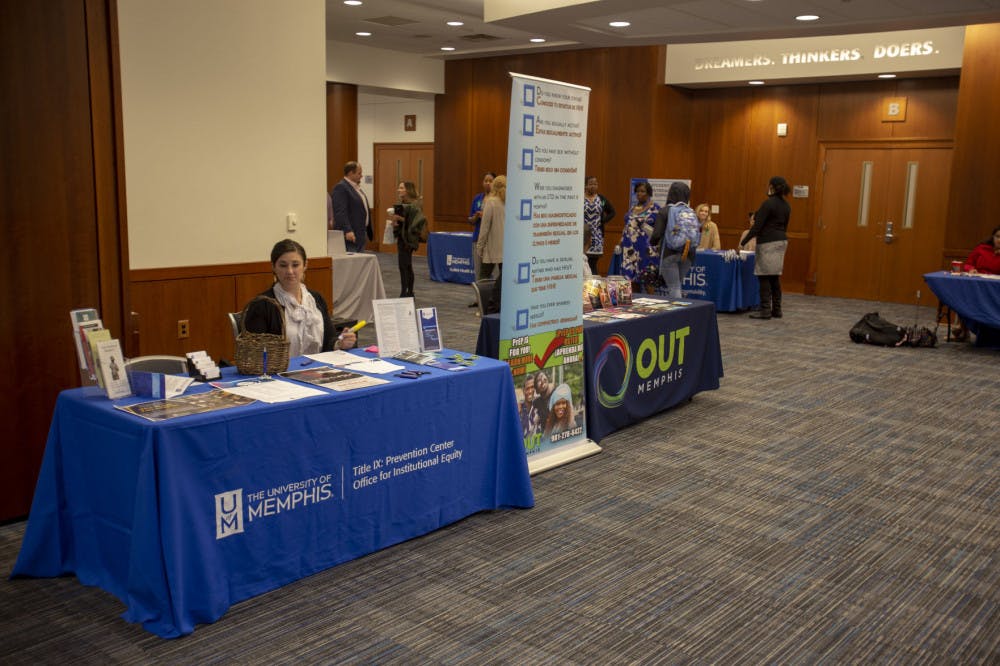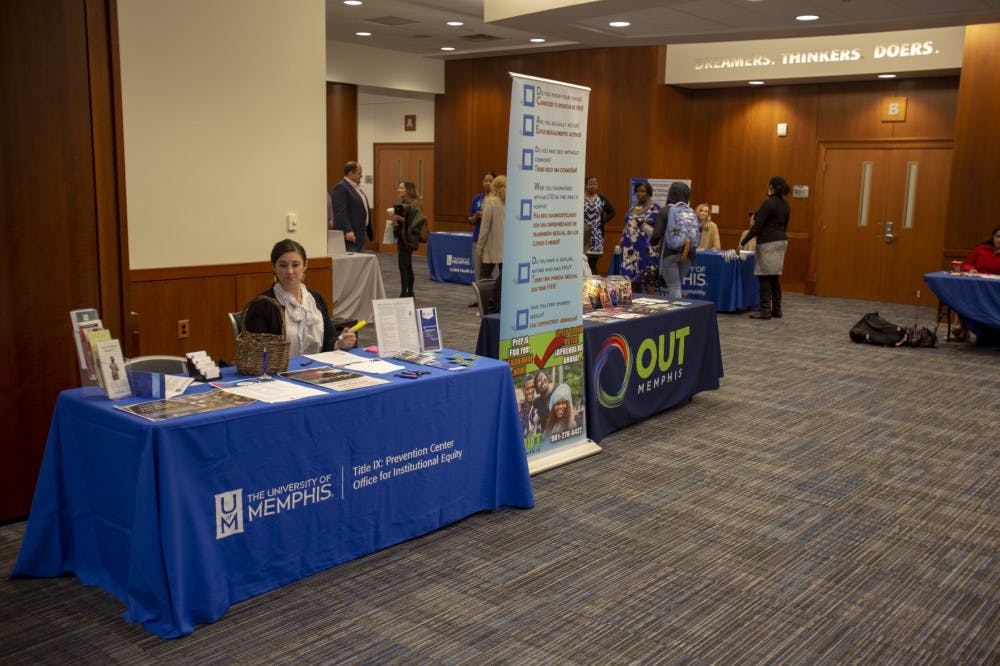
The University of Memphis in collaboration with the student government association hosted a mental health summit Thursday afternoon. The summit included tables from various organizations as well as students speaking on their mental health experiences.
Representatives from the University of Memphis and the local community called attention to mental health issues April 4 at the MEMtality Mental Health Summit in the University Center with several activities.Â
The discussion panel touched on several aspects such as treatment options and the stigma around mental illnesses.
“When we don’t know about something or when we don’t understand something, we’re naturally afraid of it,†said Samantha Richardson, a mental health counselor. “I think breaking the stigma is talking about it. People associate going to a therapist with weakness. I know it takes a lot of strength to hold all that in … But truly, it takes a whole lot more strength to face those issues, to face those struggles. It’s the exact opposite of a weakness.â€
Mental illnesses are common in the United States, according to the National Survey on Drug Use and Health by Substance Abuse and Mental Health Services Administration in 2017.Â
Nearly one in five U.S. adults live with a mental illness, with young adults aged 18-25 years having the highest prevalence of any mental illness, 25.8%, compared to adults aged 26-49 years, 22.2% and aged 50 and older, 13.8%.
Richardson also talked about the misuse of terms regarding mental health issues, like the word “bipolar.â€
“People just throw those terms out there in a joking, negative manner,†Richardson said. “So to somebody who truly has that diagnosis, they absorb that message (as), ‘Oh, that must mean I’m crazy.’â€

The University of Memphis in collaboration with the student government association hosted a mental health summit Thursday afternoon. The summit included tables from various organizations as well as students speaking on their mental health experiences.
She said people are more than their diagnosis and advocated for a change in the manner of speaking. For example, changing, “I am bipolar, I am depressed†to, “I have bipolar disorder, I have depression and I am living with it, it’s not who I am.â€
Kala Meadows, the community relations representative at The Oaks at La Paloma Residential Treatment Center said, “Everybody is different,†meaning treatment will look different for different people.
In an interview with The Daily Helmsman, Meadows talked about the struggle a lot of people face when getting a diagnosis.
“For college students, especially, it almost can seem like it’s the end of your life as you know it,†Meadows said.
She worked with a young man who was diagnosed with bipolar disorder and therefore couldn’t follow his dream of becoming a pilot. Through treatment, “He learned that his identity wasn’t tied to being a pilot after all,†Meadows said. “The need is so great for mental health services and addiction services in our country.â€
William Fite, an audience member of the summit, agreed. The dietetics and Spanish major said he is very passionate about mental health awareness. His brother committed suicide after having struggled with mental health issues for about six years.

The University of Memphis in collaboration with the student government association hosted a mental health summit Thursday afternoon. The summit included tables from various organizations as well as students speaking on their mental health experiences.
“I can’t change the fact that he’s gone,†Fite said. “But I am alive. I am here. I have a voice. I just don’t want other people to go through what he went through or to feel like they have to do it alone.â€
Fite said he thinks it’s important to call attention to the aspect of isolation that comes with mental health issues as “people feeling like they have to hold it in, like they have to just move forward without saying anything. That’s a lot of what ends up taking peoples’ lives.â€
Fite said it’s “awesome to have a place where students can ask questions and learn more.†The panelist also said reaching out and telling one’s story was the first important step.
For any student dealing with depression, family concerns, learning challenges or in need of crisis support, the Counseling Center at the UofM provides services at 214 Wilder Tower. Students can walk in Monday throguh Friday from 10 a.m. to 3 p.m. and meet with the staff to schedule an appointment. Most services are free of charge. The Crisis Center 24-hour hotline can be reached at 1-800-273-TALK.






